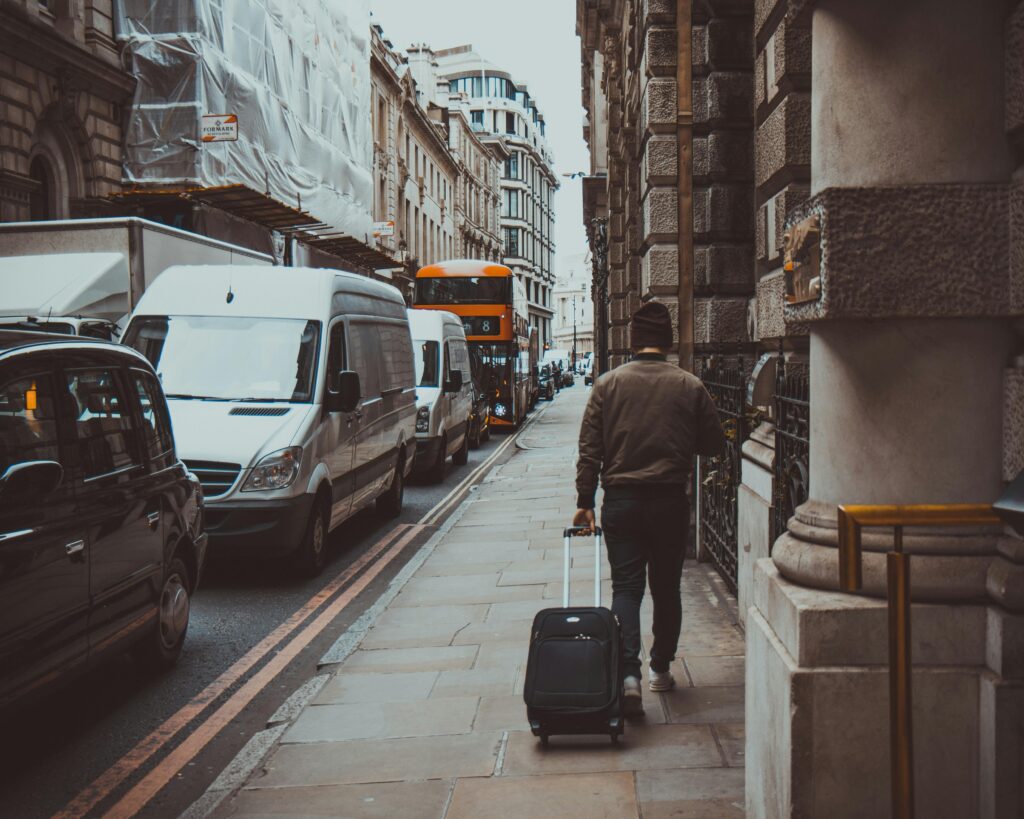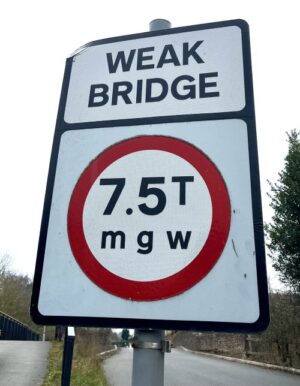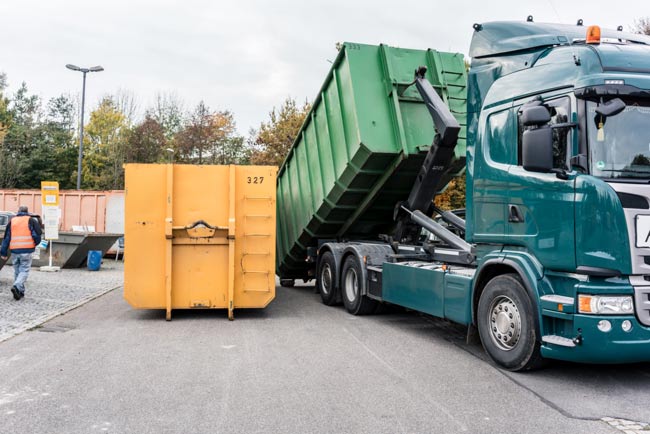- What are the HGV restrictions in London?
- London Lorry Control Scheme hours of operation
- The Excluded Route Network
- Restricted Roads
- What are the penalties for using restricted roads without a permit?
- Permits: what are they and where do I get them from?
- London Lorry Control Scheme roads to follow (and which to avoid!)
- Frequently Asked Questions
- I don’t have a permit but need to travel on restricted roads today. What should I do?
- I need to travel on restricted roads today and have sent in my application – how soon am I covered?
- How is the LLCS scheme enforced?
- What other schemes should I be aware of before driving my HGV in London?
- What route planning apps are available for HGVs?
Restrictions on the movement of HGVs over 18 tonnes around parts of London have been in place since 1985. These controls were put in to place to manage the environmental impact of heavy goods vehicle journeys in London. The scheme is helping to reduce noise and environmental pollution during unsociable hours for residents in associated areas.
With tightening rules surrounding vehicle emissions and an increased focus on wellbeing, the London HGV restrictions form part of a wide reaching drive to improve the urban environment for all users.
What are the HGV restrictions in London?
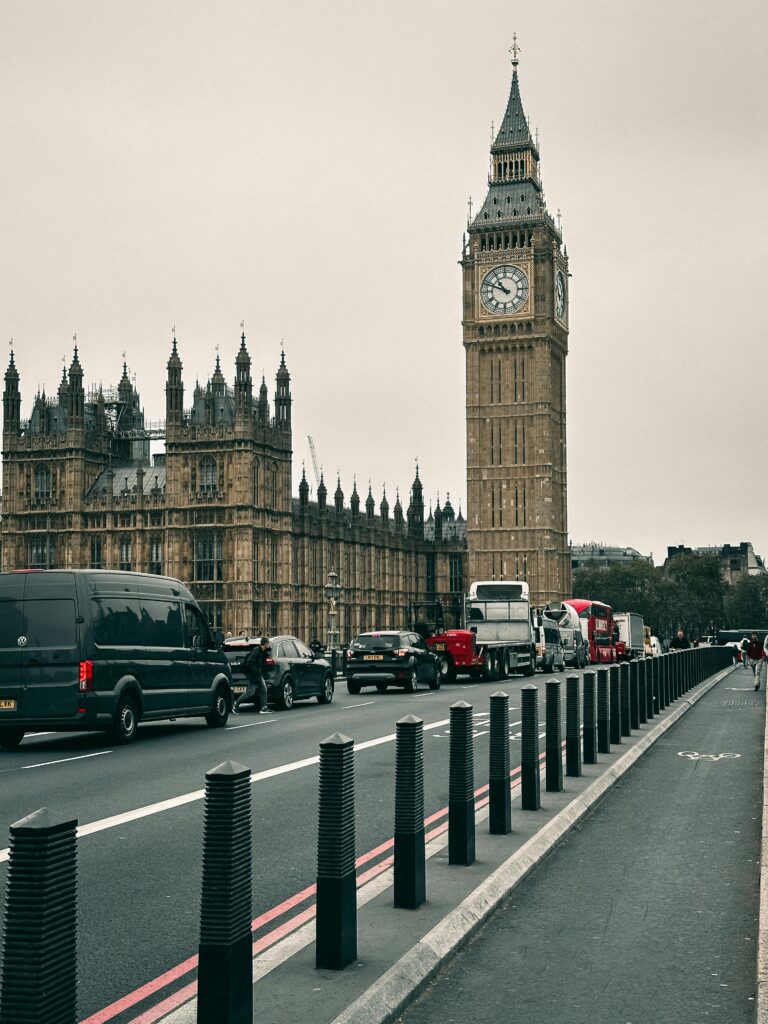
The London Lorry Control Scheme (LLCS) falls under the Greater London (Restriction of Goods Vehicles) Traffic Order 1985 and is enforced by the London Local Authorities and Transport for London Traffic Act 2003.
Vehicles over 18 tonnes (maximum gross weight) are restricted from using specific roads at certain times of day/night and weekends in order to reduce noise pollution around largely residential areas.
The LLCS is sometimes referred to as the London lorry ban, however this is misleading. The LLCS does not prohibit deliveries at any time of the day or night but it does control the route that vehicles take at certain times of day and simply means that routes should be planned accordingly.
London Lorry Control Scheme hours of operation
The LLCS is enforced during the following hours:
- Monday 9pm through to Saturday 7am
- Saturday 1pm to Monday 7am
The Excluded Route Network
Roads within the excluded route network (ERN) must be used wherever possible to reach a destination. Permits to use restricted roads will not be issued where an alternative ERN route is available. Roads within the ERN must be used to the closest point to a destination, with restricted roads only being used for the shortest distance possible.
Restricted Roads
A permit is required if an HGV is to be driven on a core network of roads included in the LLCS, which are known as restricted roads. Penalty charge notices will be issued where a vehicle is found to be using restricted roads without a permit.
What are the penalties for using restricted roads without a permit?
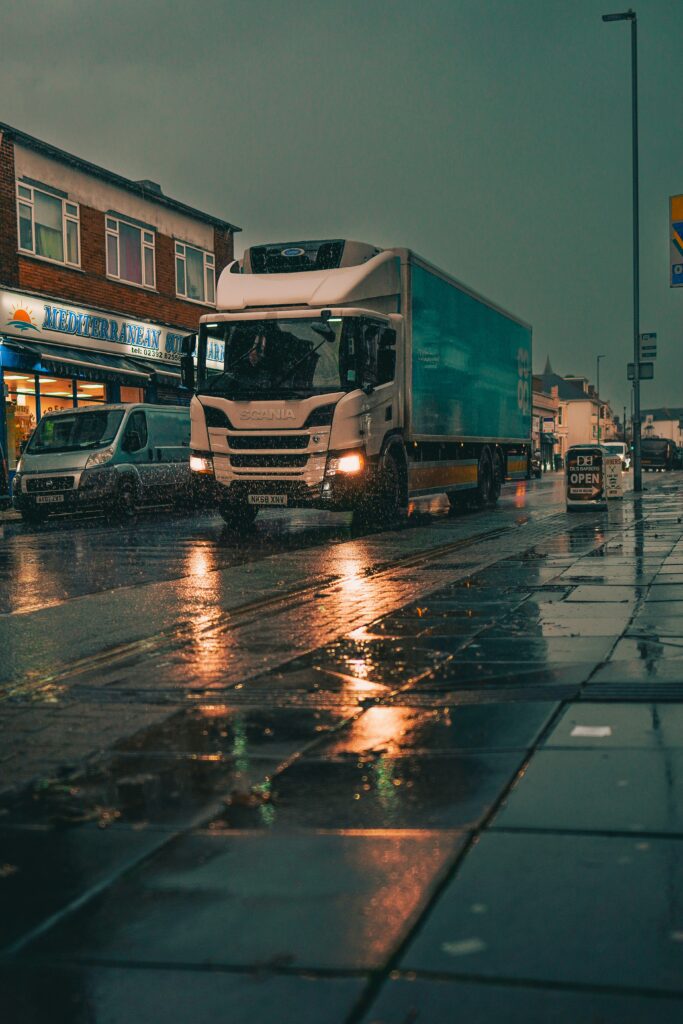
Operators face a penalty fee of £550 for using restricted roads without a permit and drivers face a fee of £130. A 50% reduction applies to these fees if paid within 14 days.
Beware, a PCN may still be issued despite having obtained permission but fail to use the shortest possible route. A special agreement may be made if there are valid reasons to use a different route, but any application to use a route other than the shortest must show that the proposed route is environmentally better.
Permits: what are they and where do I get them from?
Since 2004 drivers and operators have been required to obtain permission for each of their vehicles. Virtual permits must be applied for in advance of a journey, which allow a driver to drive a specific vehicle on restricted roads within the hours of control.
Permits are free and can be applied for via a new and improved haulier portal at https://www.londoncouncils.gov.uk/services/london-lorry-control which acts as a one-stop shop for the London Lorry Control Scheme.
Hauliers can create an account, log in and manage cases online. Vehicles may be added or removed and the status of any open cases may also be viewed. The haulier portal also enables account holders to contact LLCS staff and even pay any PCNs that have been issued.
If you do not have internet access you may call the London Lorry Control Scheme department on 020 7934 9915. Information is also available by emailing lorry.control@londoncouncils.gov.uk.
London Lorry Control Scheme roads to follow (and which to avoid!)
An interactive page showing a HGV time restriction map for London is available from the LLCS website. This gives information on timings relevant to restricted routes, the excluded route network, height restrictions, weight restrictions and the inner London congestion zone.
The best way to access route advice and information is to contact the LLSC team. Enquiries should be made to lorry.control@londoncouncils.gov.uk or by calling 020 7934 9697.
Frequently Asked Questions
I don’t have a permit but need to travel on restricted roads today. What should I do?
If you need to travel on restricted roads today buy don’t have a permit simply apply online to the LLCS team. Your permit will be valid with immediate effect.
I need to travel on restricted roads today and have sent in my application – how soon am I covered?
Once an online application is submitted the vehicles entered on the form will be covered for 14 days whilst the application is assessed. Therefore a vehicle can use restricted roads from the day an application has been made.
However, it must be remembered that the use of restricted roads must be as limited as possible – a permit will not be granted if an alternative ERN route is available and a PCN will be issued.
How is the LLCS scheme enforced?
The LLCS is enforced by a team of enforcement officers. Information that they obtain is sent to the lorry control team, who will investigate and consider whether to take further action or not.
What other schemes should I be aware of before driving my HGV in London?
There are a range of other schemes currently operational within parts of London, which have their own restrictions. These include local authority restrictions, which may affect your journey/delivery of your load, ultra-low emissions zone, community safety and the congestion zone. Other restrictions and charges may apply.
For example, congestion charging is still applicable to all vehicles travelling in certain parts of London, with fees of £11.50/day enforced 7am-6pm Monday to Friday.
What route planning apps are available for HGVs?
Mapping and information sites such as the London Lorry Route Approver do exist, which will flag up all applicable schemes on a bespoke route and obtain online approval for your journey. These do come at a cost, however, as services such as this are charged on a monthly subscription basis for the most part. Read our article on HGV sat nav apps for more advice.
However with the right preparation and advice from the London Lorry Control Scheme, London’s HGV restrictions shouldn’t pose a problem for your haulage operations.

